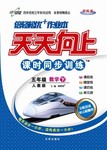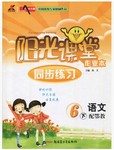题目内容
Previously we wish some of the things ________ effortless, but we now find them unattainable.
A. wasB. had beenC. wereD. has been
练习册系列答案
 天天向上课时同步训练系列答案
天天向上课时同步训练系列答案 阳光课堂同步练习系列答案
阳光课堂同步练习系列答案
相关题目
题目内容
Previously we wish some of the things ________ effortless, but we now find them unattainable.
A. wasB. had beenC. wereD. has been
 天天向上课时同步训练系列答案
天天向上课时同步训练系列答案 阳光课堂同步练习系列答案
阳光课堂同步练习系列答案